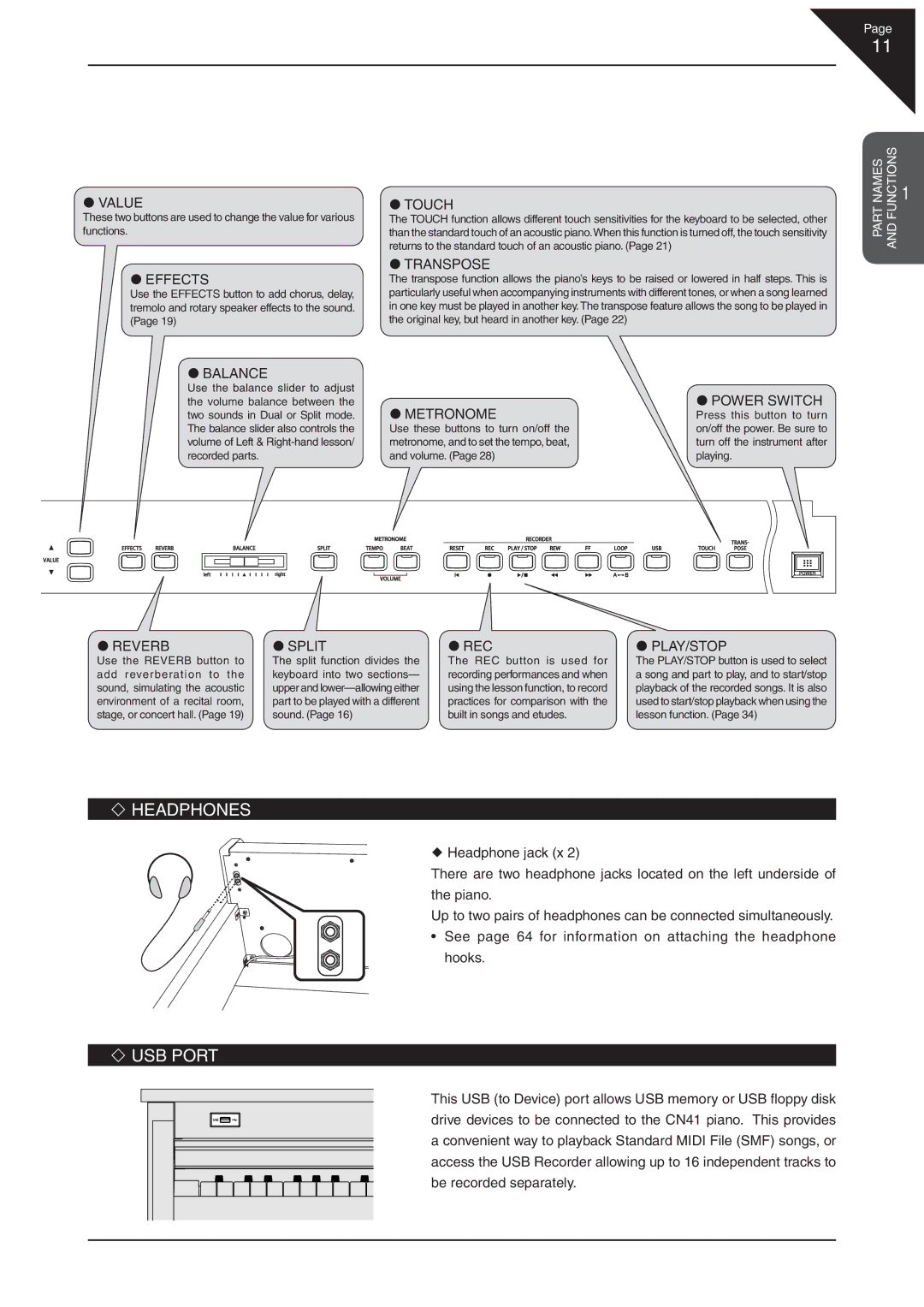
VALUE
These two buttons are used to change the value for various functions.
EFFECTS
Use the EFFECTS button to add chorus, delay, tremolo and rotary speaker effects to the sound. (Page 19)
BALANCE
Use the balance slider to adjust the volume balance between the two sounds in Dual or Split mode. The balance slider also controls the volume of Left &
TOUCH
The TOUCH function allows different touch sensitivities for the keyboard to be selected, other than the standard touch of an acoustic piano.When this function is turned off, the touch sensitivity returns to the standard touch of an acoustic piano. (Page 21)
TRANSPOSE
The transpose function allows the piano’s keys to be raised or lowered in half steps. This is particularly useful when accompanying instruments with different tones, or when a song learned in one key must be played in another key.The transpose feature allows the song to be played in the original key, but heard in another key. (Page 22)
METRONOME | POWER SWITCH | |||||
Press this button to turn | ||||||
Use these buttons to turn on/off the | on/off the power. Be sure to | |||||
metronome, and to set the tempo, beat, | turn off the instrument after | |||||
and volume. (Page 28) | playing. | |||||
|
|
|
|
|
|
|
|
|
|
|
|
|
|
|
|
|
|
|
|
|
|
|
|
|
|
|
|
Page
11
AND FUNCTIONS
PART NAMES
1
REVERB
Use the REVERB button to add reverberation to the sound, simulating the acoustic environment of a recital room, stage, or concert hall. (Page 19)
SPLIT
The split function divides the keyboard into two sections— upper and
REC
The REC button is used for recording performances and when using the lesson function, to record practices for comparison with the built in songs and etudes.
PLAY/STOP
The PLAY/STOP button is used to select a song and part to play, and to start/stop playback of the recorded songs. It is also used to start/stop playback when using the lesson function. (Page 34)
HEADPHONES
Headphone jack (x 2)
There are two headphone jacks located on the left underside of the piano.
Up to two pairs of headphones can be connected simultaneously.
• See page 64 for information on attaching the headphone hooks.
USB PORT
This USB (to Device) port allows USB memory or USB fl oppy disk drive devices to be connected to the CN41 piano. This provides a convenient way to playback Standard MIDI File (SMF) songs, or access the USB Recorder allowing up to 16 independent tracks to be recorded separately.
